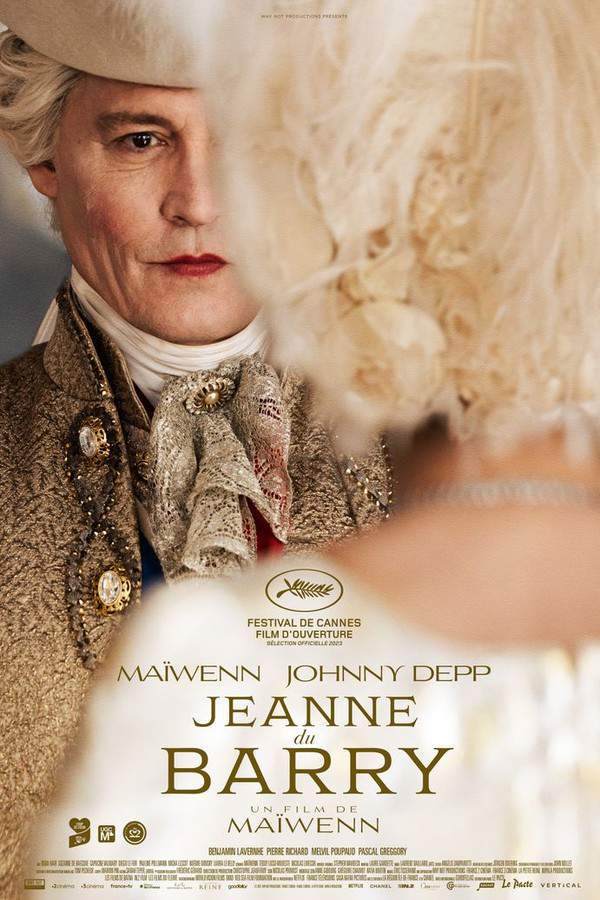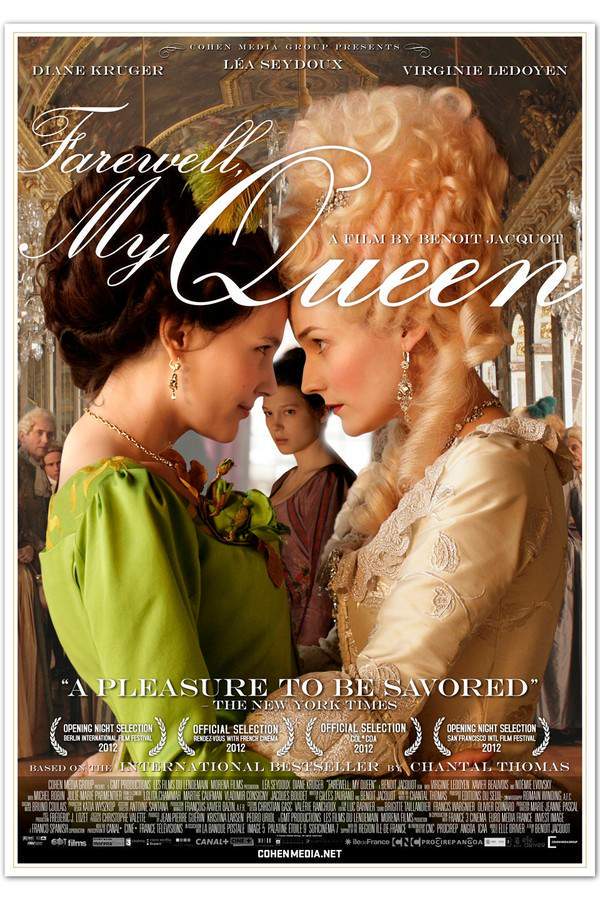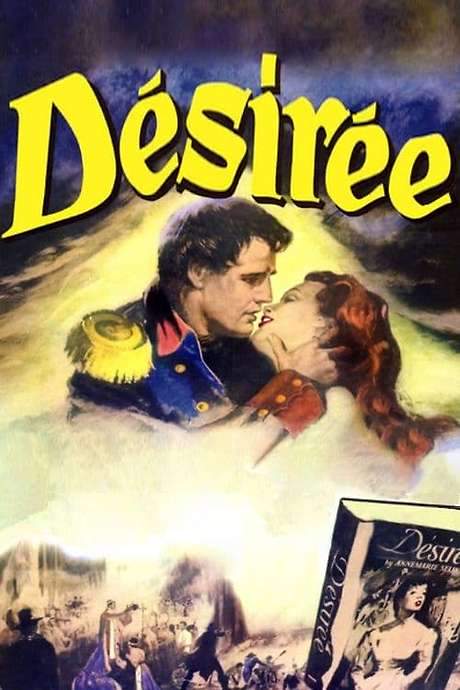Jeanne du Barry 2024

Born to humble beginnings, Jeanne Vaubernier’s determination leads her to the extravagant court of King Louis XV in 18th century France. She captures the attention of the Comte du Barry, who uses his influence to introduce her to the king. Jeanne’s ambition and beauty propel her through the social ranks, forcing her to confront complex relationships and fierce competition in a world defined by power and intrigue.
Does Jeanne du Barry have end credit scenes?
No!
Jeanne du Barry does not have end credit scenes. You can leave when the credits roll.
Meet the Full Cast and Actors of Jeanne du Barry
Explore the complete cast of Jeanne du Barry, including both lead and supporting actors. Learn who plays each character, discover their past roles and achievements, and find out what makes this ensemble cast stand out in the world of film and television.

Johnny Depp
Louis XV

Melvil Poupaud
Le Comte Du Barry

Pascal Greggory
Le Duc D'Aiguillon

India Hair
Adélaïde

Pierre Richard
Le Duc de Richelieu

Noémie Lvovsky
La Comtesse de Noailles

Caroline Chaniolleau
Madame de la Garde

Benjamin Lavernhe
La Borde

Micha Lescot
Mercy

Patrick d'Assumçao
Choiseul

Suzanne De Baecque
Victoire

Stanislas Stanic
Narrator

Maïwenn
Jeanne du Barry

Robin Renucci
Monsieur Dumousseaux

Marianne Basler
La mère de Jeanne adolescente

Capucine Valmary
Louise

Laura Le Velly
Sophie

Diego Le Fur
Le Dauphin

Pauline Pollmann
Marie-Antoinette

Marine Boca
L'amie de Jeanne
External Links and Streaming Options
Discover where to watch Jeanne du Barry online, including streaming platforms, rental options, and official sources. Compare reviews, ratings, and in-depth movie information across sites like IMDb, TMDb, Wikipedia or Rotten Tomatoes.
Ratings and Reviews for Jeanne du Barry
See how Jeanne du Barry is rated across major platforms like IMDb, Metacritic, and TMDb. Compare audience scores and critic reviews to understand where Jeanne du Barry stands among top-rated movies in its genre.

The Movie Echo Score
Jeanne du Barry presents a striking visual framework that underscores its period setting but struggles to balance craftsmanship with narrative clarity. The film’s meticulous production design and costumes draw frequent praise, yet many note uneven pacing and underdeveloped character relationships that impede engagement. Performances receive mixed reactions, with some lauding the leads’ charisma and others finding limited depth. Ultimately, the movie’s aesthetic strengths are tempered by its narrative and emotional shortcomings.
The Movie Echo Score Breakdown for Jeanne du Barry

Art & Craft
In terms of art and craft, Jeanne du Barry delivers consistently rich production design and costume work. Multiple comments highlight the film’s elaborate sets at Versailles and the detailed period accessories that reinforce its historical setting. Although a few critics found the visual style occasionally gaudy, most responses emphasize its polished look and attentive mise-en-scène. Overall, the film’s craftsmanship stands out as a clear asset.

Character & Emotion
In terms of character and emotion, the film presents uneven performances that divide opinion. Several viewers praise the lead actors’ charisma but note a lack of chemistry and depth in their relationship. Critics also point to broad or unmotivated portrayals that limit emotional engagement. As a result, the characters remain at a superficial level, with only occasional moments of genuine resonance.

Story & Flow
When it comes to story and flow, the narrative is often described as hollow and unfocused. Observers note that the palace intrigue emerges gradually but lacks sufficient emphasis and innovation to sustain momentum. The screenplay’s reluctance to probe deeper motivations leaves many scenes feeling inert and underdeveloped. In the end, the plot conveys historical events accurately but struggles to maintain audience engagement.

Sensory Experience
In terms of sensory experience, the film offers a rich visual texture supported by detailed costume and set work. The color palette and period-accurate decor create an immersive environment, though some responses found the style occasionally over-ornate. Sound and music receive limited focus in commentary, suggesting a neutral audio presence. Overall, the strong visual identity carries much of the sensory impact.

Rewatch Factor
When considering rewatch potential, Jeanne du Barry’s initial visual appeal is unlikely to translate into lasting repeat viewings. Critics observe that the story’s uneven pacing and shallow character exploration reduce the film’s staying power. Although the spectacle may reward a second look for costume and set enthusiasts, the lack of narrative depth makes repeated engagement less compelling overall.

48
Metascore
4.5
User Score


48%
TOMATOMETER

95%
User Score

6.7 /10
IMDb Rating

69
%
User Score

3.0
From 78 fan ratings

5.00/5
From 4 fan ratings
Take the Ultimate Jeanne du Barry Movie Quiz
Challenge your knowledge of Jeanne du Barry with this fun and interactive movie quiz. Test yourself on key plot points, iconic characters, hidden details, and memorable moments to see how well you really know the film.
Jeanne du Barry Quiz: Test your knowledge on the historical drama 'Jeanne du Barry' and its intriguing storyline.
What is Jeanne's full name?
Jeanne Vaubernier
Jeanne D’Arc
Jeanne de la Garde
Jeanne de Versailles
Show hint
Full Plot Summary and Ending Explained for Jeanne du Barry
Read the complete plot summary of Jeanne du Barry, including all major events, twists, and the full ending explained in detail. Explore key characters, themes, hidden meanings, and everything you need to understand the story from beginning to end.
Jeanne Vaubernier, born to a Catholic monk and a cook named Anne, finds herself navigating a turbulent life. As an illegitimate child, Jeanne is sent to a convent where her insatiable curiosity leads to expulsion for indulging in erotic literature. This early defiance marks the beginning of her unconventional journey.
Relocating to Paris, Jeanne becomes a reader for a widow, Madame de la Garde, wherein she sharpens her wit to mingle among the aristocracy. However, Jeanne’s charm proves too enticing, as she is expelled once again, this time for entanglements with Madame de la Garde’s sons. Undeterred, she embraces her status as a courtesan, mastering the art of libertinage and seducing affluent lovers.
Her fortunes take a significant turn when she meets a count, Le Comte Du Barry, whose noble friend, Le Duc de Richelieu, introduces her to King Louis XV. The king’s physician meticulously examines Jeanne to ensure she is free from any vaginal illnesses, a testament to the peculiar protocols of the royal court.
Set against the backdrop of 1770, a year marked by mourning as Queen Marie passes after serving 43 years as consort, the King’s daughters express their displeasure regarding Jeanne’s rise amidst their grief. Without a official queen and with the King reluctant to remarry, Jeanne unexpectedly becomes the foremost lady at Versailles.
Though much of her time is spent in the lavish halls of Versailles, she also chooses Zamor as her page, further securing her place in the royal sphere. The tension escalates when Louise of France, the youngest daughter of Louis, rejects her father’s new mistress by leaving the court to become a nun.
As political alliances take form, Stephen Francis, Duke of Choiseul serves as prime minister while the 16-year-old Dauphin marries the young Marie Antoinette. Meanwhile, Mercy serves as the ambassador from the Archduchy of Austria, turning the court dynamics into a breeding ground for intrigue.
However, as Louis XV falls ill with smallpox, the tides turn against Jeanne. Reviled by the royal family and the Catholic Church, she is quickly ousted from Versailles after the king’s demise. Ironically, the very court that once embraced her now casts her aside, leading to her betrayal by Zamor, who orchestrates her execution on December 8, 1793, due to her connections with the royals and her past as a commoner-turned-countess.
Uncover the Details: Timeline, Characters, Themes, and Beyond!

Coming soon on iOS and Android
The Plot Explained Mobile App
From blockbusters to hidden gems — dive into movie stories anytime, anywhere. Save your favorites, discover plots faster, and never miss a twist again.
Sign up to be the first to know when we launch. Your email stays private — always.
Watch Trailers, Clips & Behind-the-Scenes for Jeanne du Barry
Watch official trailers, exclusive clips, cast interviews, and behind-the-scenes footage from Jeanne du Barry. Dive deeper into the making of the film, its standout moments, and key production insights.
Jeanne du Barry Themes and Keywords
Discover the central themes, ideas, and keywords that define the movie’s story, tone, and message. Analyze the film’s deeper meanings, genre influences, and recurring concepts.
Jeanne du Barry Other Names and Titles
Explore the various alternative titles, translations, and other names used for Jeanne du Barry across different regions and languages. Understand how the film is marketed and recognized worldwide.
Similar Movies To Jeanne du Barry You Should Know About
Browse a curated list of movies similar in genre, tone, characters, or story structure. Discover new titles like the one you're watching, perfect for fans of related plots, vibes, or cinematic styles.
Quick Links: Summary, Cast, Ratings, More

What's After the Movie?
Not sure whether to stay after the credits? Find out!
Explore Our Movie Platform
New Movie Releases (2025)
Famous Movie Actors
Top Film Production Studios
Movie Plot Summaries & Endings
Major Movie Awards & Winners
Best Concert Films & Music Documentaries
Movie Collections and Curated Lists
© 2025 What's After the Movie. All rights reserved.































